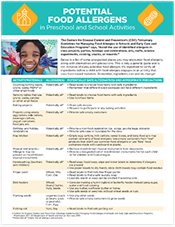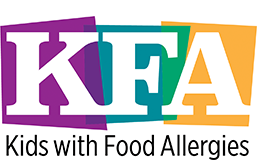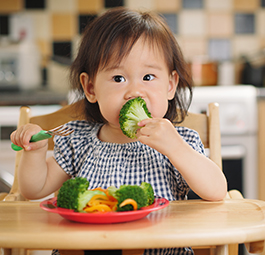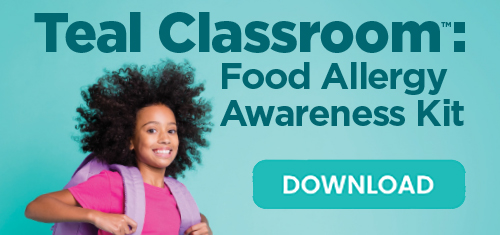Living with Food Allergies

School Planning Resources for Parents
Children spend around seven hours a day in school, not including before and after school activities.
Kids With Food Allergies (KFA), a division of the Asthma and Allergy Foundation of America (AAFA), has many free resources for parents, schools, teachers, and staff to use to prepare for the upcoming school year and keep students with food allergies safe.
Closed
Tips and Articles
Epinephrine Auto-Injectors: Everything You Need to Know
Learn about the options available in the U.S. and things you should know before you get your prescription filled for school (including discounts).
When Is a Child Ready for Self-Care of Anaphylaxis?
Learn about factors to help you decide if your child is ready to self-administer epinephrine if they have a life-threatening allergic reaction.
COVID-19 Guidelines for Schools and the Impact on Kids With Food Allergies and Asthma
As schools work to prevent the spread of the virus that causes COVID-19, some tactics may impact students with food allergies and asthma. Our COVID-19 resources for schools provides supplemental guidance to help schools as they develop their policies and procedures.
504 Plans, IHCPs, ECPs: Food Allergy School Health Care Plans
What are 504 plans, IHCPs, and ECPs? What are the laws that address the needs of students with food allergy in schools?
Tips for Managing Food Allergies at School: Get Active With Food-Free Activities (includes printable PDF)
Use this list to encourage your child’s teacher to use non-food rewards in their classroom to keep children with food allergies safe.
How to Talk to Your Child About Food Allergy Bullying
Food allergy bullying is much more than emotional and mental torment. It’s a threat to a child’s health. Read ways to talk to your child about food allergy bullying as one way to prevent or respond to this frightening practice.
Food Allergy To-Do List Before School Ends for Summer Break
Planning for the end of the school year is a great way to make sure the next school year starts smoothly. This checklist can guide you on steps to take before summer break begins.
Downloads and Resources
Teal Classroom™ Kit: Creating a Food Allergy Aware Classroom (printable PDF)
A Teal Classroom™ encourages being safe and inclusive for everyone with food allergies. Our Teal Classroom™ Kit contains resources for teachers and other staff to raise food allergy awareness at school. Share this guide with your school nurse or your child’s teacher.
10 School Planning Tips When Your Child Has Food Allergies (printable PDF)
Advance planning and a positive relationship are the keys to success in sending your child off to a new school. Find out how you can plan and what you can do to give the school to set your child up for a successful school year.

Non-Food Rewards for Children With Food Allergies
As recommended by the CDC, non-food rewards are great for creating a safe and inclusive classroom. This resource lists several non-food reward ideas and includes a PDF you can print for reference. Free pintable PDF available to download.

Potential Food Allergens in School Crafts and Activities
Common food allergens can be found in arts and craft supplies, as well as many classroom projects and activities. Learn what may contain food allergens, as well as alternatives and precautions. Free pintable PDF available to download.

Is It COVID-19, the Flu, a Cold, Allergies or Asthma? (printable PDF)
There are some symptoms that are similar between COVID-19, a cold, the flu, seasonal allergies, and asthma. Use our symptom comparison chart to help determine if staff or a student may be feeling symptoms of asthma, allergies or a respiratory illness like COVID-19, the flu, or a cold. You will also find tips on how to help stop the spread of the new coronavirus. (Available in English and Spanish.)
Food Allergy Management Education Toolkit for Schools
(Visit stlouischildrens.org)
St. Louis Children’s hospital, in collaboration with allergy experts from around the nation, created a free manual for schools to help schools create and adopt food allergy policies consistent with the CDC voluntary guidelines for managing food allergies in schools.
Videos
Back to School With Food Allergies Chat (August 2017) (Visit YouTube)
Michael Pistiner, MD, MMSc, talks about how to prepare for the new school year while keeping your child with food allergies safe. The chat includes valuable information including what options of epinephrine are available and how to use them.
What Forms Do I Need From My Child’s Doctor for School? (July 2016) (Visit YouTube)
Dr. Dave Stukus and Dr. Mike Pistiner discuss what forms you need to get from your doctor for managing your child’s food allergies and asthma at school.
What Is the Difference Between Self-Carry and Self-Administer? (July 2016) (Visit YouTube)
Dr. Dave Stukus and Dr. Mike Pistiner discuss the difference between allowing a child to self-carry their emergency medications versus being required to self-administer them.
Allergy-Friendly School Lunch Box Ideas (September 2015)
Registered dietitian Debra Indorato, RD, LDN, and blogger Keeley McGuire share creative, nutritious and inspirational lunch ideas. They give kid-friendly tips, such as using cookie cutters and building lunches around a theme.
Coping with Food Allergy Anxiety: Back to School and More (August 2015)
Dr. Gianine D. Rosenblum speaks about managing children’s anxiety related to food allergies. She zeroes in on the needs of specific age groups. She also describes coping strategies universal to any age. Dr. Rosenblum is a psychologist and a parent of a child with food allergies.
Back to School with Asthma and Food Allergies (July 2014) (Visit YouTube)
David Stukus, MD, and Michael Pistiner, MD, MMSc, talk about preparing to send your child to school. They also discuss how your allergist can help with back-to-school planning.
504 Plans and IHCPs (January 2014)
Laurel Francouer, JD, presented the different options available for school health plans for students with food allergies, reviewed federal laws and definitions, and explained students’ rights.
Food Allergy in School Part 1: Overview(July 2012) (Visit YouTube)
Dr. Michael Pistiner provides practical tips for managing food allergies in school settings.
Food Allergy in School Part 2: Ask the Experts (August 2012) (Visit YouTube)
A panel of six experts (allergists and school nurses) from around the U.S. answered questions submitted by attendees. Topics covered included school staff training, where epinephrine should be located, cafeteria concerns, partnering with your school and more.
Nutrition and Food Safety for Allergic Students (August 2013)
School nutrition expert, author and speaker Dayle Hayes, MS, RD and Nutrition Advisor Debra Indorato, RDN, discuss school meal regulations for students with food allergies, current thinking about food allergies in schools, the importance of establishing relationships with school food service directors, and more.
Partnering with Your School Nurse (July 2013)
Dr. Pistiner and Sally Schoessler of the National Association of School Nurses (NASN) provide tips on how to work with your school nurse to set up a plan to keep your child with food allergies safe at school.
Guidelines, Laws and Recommendations for Schools
CDC Guidelines for Schools and Early Education Centers
The Centers for Disease Control and Prevention (CDC) created guidelines for schools and early childhood education programs to help them manage the risk of food allergies and severe allergic reactions in children.
State Honor Roll from Asthma and Allergy Foundation of America (AAFA) (Visit AAFA.org)
This is an annual report by AAFA to help identify states with the most comprehensive public policies supporting people with asthma, food allergies, anaphylaxis and related allergic diseases in grade schools. Find out how your state ranks.
Stocking Epinephrine in Schools (May 2013)
Find out why it is important that schools keep an undesignated supply of epinephrine to treat allergic emergencies that occur on school campus.
504 Plans and IHCPs (January 2014)
Laurel Francoeur, JD, presented the different options available for school health plans for students with food allergies, reviewed federal laws and definitions, and explained students’ rights.
COVID-19 and Asthma Toolkit for Schools
 As some schools work to prevent the spread of the virus that causes COVID-19, some tactics may impact staff and students with asthma. Our COVID-19 and Asthma Toolkit for Schools provides supplemental guidance to help schools as they develop their policies and procedures.
As some schools work to prevent the spread of the virus that causes COVID-19, some tactics may impact staff and students with asthma. Our COVID-19 and Asthma Toolkit for Schools provides supplemental guidance to help schools as they develop their policies and procedures.
Updated August 2021














